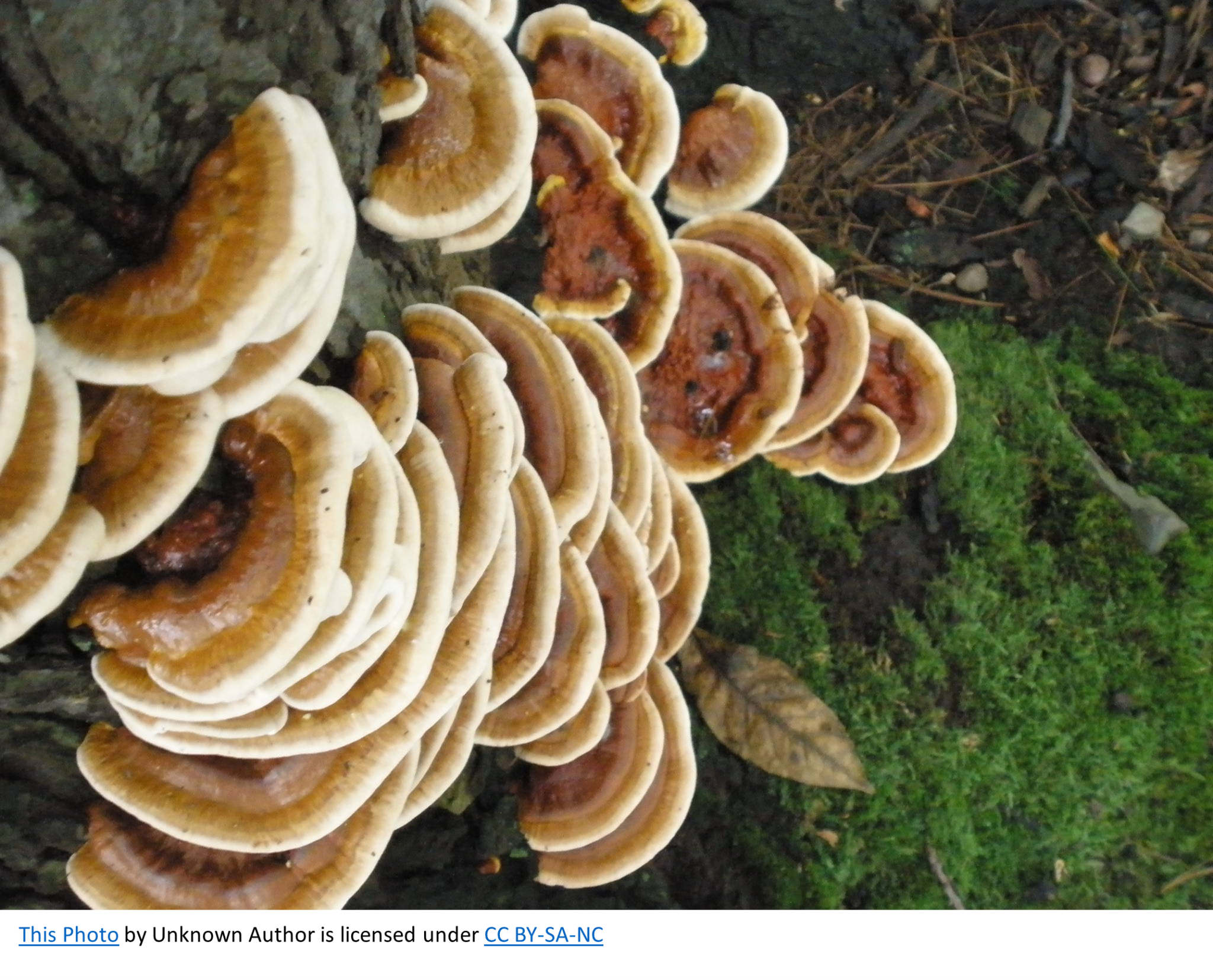Reishi mushrooms, scientifically known as Ganoderma lucidum, have captivated the attention of health enthusiasts and practitioners around the world. Renowned for their transformative effects, these mushrooms have a rich history rooted in traditional Chinese medicine, where they were revered as the mushroom of immortality.
Today, their popularity has soared as scientific research emerges, shedding light on their potential health benefits. Packed with essential nutrients, Reishi mushrooms offer a plethora of vitamins, minerals, and antioxidants that support overall well-being. Moreover, they possess immune-boosting properties and may contribute to stress reduction and mental health support.
While further research is needed to fully substantiate these claims, incorporating Reishi mushrooms into a healthy diet can be a wise choice. However, it is essential to exercise caution, particularly for individuals with underlying health conditions or those taking medications. Consulting with a healthcare professional is advised before incorporating Reishi mushrooms into daily routines.
Key Takeaways
- Reishi mushrooms have a long history and are revered in traditional Chinese medicine.
- They are low in calories and fat, making them a healthy addition to any diet.
- Reishi mushrooms may enhance the body’s immune response and support the production of immune cells.
- They contain compounds that may have anti-cancer and anti-tumor properties, but they should not be used as a substitute for medical treatment.
History and Cultural Significance
Reishi mushrooms have a rich history and hold significant cultural importance. Revered in traditional Chinese medicine as the mushroom of immortality, they have been used for centuries to promote health and longevity. In ancient times, they were exclusively reserved for emperors and nobility due to their rarity and perceived medicinal properties.
Reishi mushrooms belong to the polypore family and are typically found growing on trees and logs. With their distinct reddish-brown cap and glossy surface, they are easily recognizable.
Beyond their cultural significance, reishi mushrooms offer a plethora of health benefits. Packed with essential nutrients, antioxidants, and immune-boosting beta-glucans, they can support the immune system, reduce inflammation, and promote overall well-being.
While their historical and cultural significance is fascinating, it is the transformative effects of Reishi Mushrooms on health that make them truly remarkable.
Nutritional Composition
Continuing the exploration of reishi mushrooms, an examination of their nutritional composition reveals their impressive health-promoting properties. Here is a breakdown of the key nutrients found in reishi mushrooms:
- Low in Calories and Fat: A 1-teaspoon serving of reishi mushroom powder contains only 10 calories and 0 grams of total fat, making it a healthy addition to any diet.
- Rich in Essential Nutrients: Reishi mushrooms are packed with vitamins, minerals, and antioxidants. They are particularly rich in beta-glucans, which can help boost the immune system, and polysaccharides with anti-inflammatory properties.
- Good Source of Fiber: Reishi mushrooms contain 2 grams of carbohydrates and 1 gram of dietary fiber per serving. This fiber content aids in digestion and promotes a healthy gut.
- No Added Sugar or Sodium: Reishi mushrooms have no total or added sugar and no sodium, making them a great option for those watching their sugar and salt intake.
Incorporating reishi mushrooms into your diet can provide you with these beneficial nutrients and support your overall health and well-being.
Immune-Boosting Properties
The immune-boosting properties of reishi mushrooms have been a subject of interest due to their potential to enhance the body’s defense mechanisms. Reishi mushrooms have long been revered in traditional Chinese medicine for their ability to support the immune system. These mushrooms stimulate the production of white blood cells and promote the production of immune cells like B and T cells. By strengthening the body’s defense mechanisms, reishi mushrooms help fend off infections and illnesses.
While more clinical trials are needed to confirm their immune-supporting effects, the compounds found in reishi mushrooms, such as beta-glucans and polysaccharides, show promising results. Incorporating reishi mushrooms into a healthy diet or as a supplement may be valuable in maintaining overall health and well-being.
Stress Reduction and Mental Health Benefits
The potential stress reduction and mental health benefits of incorporating reishi mushrooms into one’s diet or as a supplement are worth exploring. Reishi mushrooms have been traditionally used to promote relaxation and alleviate anxiety and depression. While more research is needed to substantiate these claims, preliminary studies suggest that reishi mushrooms contain compounds that may calm the nervous system and reduce stress.
Here are four ways reishi mushrooms may benefit mental health:
- Promoting relaxation: Reishi mushrooms have been shown to have an adaptogenic effect, helping the body adapt to stress and promoting a sense of calm and relaxation.
- Alleviating anxiety and depression: Some studies suggest that reishi mushrooms may have antidepressant and anxiolytic properties, potentially offering relief for individuals struggling with anxiety and depression.
- Supporting sleep: Reishi mushrooms have been used to improve sleep quality and duration. They may help regulate sleep cycles and promote a restful night’s sleep.
- Boosting mood: Preliminary research suggests that reishi mushrooms may have mood-enhancing effects, potentially improving overall mental well-being.
While more scientific evidence is needed, incorporating reishi mushrooms into one’s diet or supplement routine may offer potential mental health benefits. As always, it is important to consult with a healthcare professional before making any significant changes to your diet or supplement regimen.
Potential Anti-Cancer Effects
While more research is needed, reishi mushrooms have shown promise in their potential anti-cancer effects. These mushrooms contain compounds called triterpenes and polysaccharides, which have been found to possess anti-cancer and anti-tumor properties. Although they are not a substitute for medical treatment, small clinical studies have demonstrated positive effects on cancer patients.
Reishi mushrooms could be valuable as part of an overall health-focused approach. However, it is important to note that further research is required to fully substantiate these claims. As with any health-related matter, it is advisable to consult with a healthcare professional before incorporating reishi mushrooms into your diet.
Nevertheless, the potential anti-cancer effects of reishi mushrooms are an exciting area of study that warrants continued exploration.
Integration Into a Healthy Diet
To incorporate reishi mushrooms into a healthy diet, it is important to consider various preparation methods and potential recipes. Here are some tips to help you integrate this powerful fungus into your daily meals:
- Supplement with reishi mushroom powder or capsules: Look for reputable brands that offer high-quality and third-party-certified products to ensure purity and effectiveness.
- Include reishi mushrooms in drink blends: Add reishi mushroom powder to your coffees, teas, or protein powders for an extra nutritional boost.
- Add reishi mushroom powder to your meals: Incorporate it into soups, stews, sauces, and smoothies to enhance the flavor and enjoy the potential health benefits.
- Use whole dried reishi mushrooms: Many specialty and online grocers sell whole dried reishi mushrooms that can be rehydrated and used in various dishes.
Tips for Purchasing and Consuming Reishi Mushrooms
To ensure that you make informed choices when purchasing and consuming reishi mushrooms, it is essential to be aware of some helpful tips.
First and foremost, it is crucial to purchase reishi mushrooms from reputable brands or suppliers. Look for products that are third-party certified, as this ensures quality and purity.
Additionally, consider the form in which you want to consume reishi mushrooms. They are available in powder or capsule form, which can be easily incorporated into your daily routine. You can also find whole dried reishi mushrooms at specialty or online grocers.
Finally, when it comes to consuming reishi mushrooms, there are numerous options. You can add reishi mushroom powder to beverages like coffee, tea, or protein shakes. They can also be incorporated into soups, stews, sauces, and smoothies.
Safety Considerations and Precautions
What are the important safety considerations and precautions when consuming reishi mushrooms?
- Consult a healthcare professional: Before incorporating reishi mushrooms into your diet, it is important to consult with a healthcare professional, especially if you have any underlying health conditions or take medications. They can provide personalized advice based on your specific circumstances.
- Start with small doses: It is recommended to start with small doses of reishi mushrooms and gradually increase the amount over time. This allows your body to adjust and minimizes the risk of potential side effects.
- Be aware of allergies: Like any food or supplement, some individuals may have allergies to reishi mushrooms. If you have a known allergy to mushrooms, it is best to avoid reishi mushrooms altogether.
- Monitor for side effects: While reishi mushrooms are generally considered safe, some individuals may experience side effects such as dizziness, digestive issues, or skin rashes. If you experience any adverse reactions, it is important to discontinue use and consult a healthcare professional.

